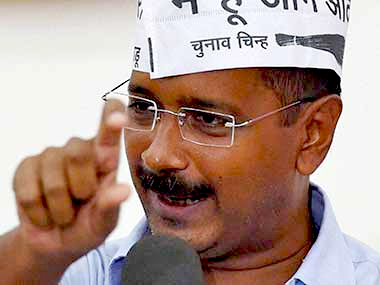New Delhi, Jun 6: Delhi chief minister Arvind Kejriwal tore into lieutenant governor Najeeb Jung and the BJP-led Centre, calling Jung a “polling agent of the BJP, who has turned Raj Niwas into BJP headquarters”.

“People of Delhi have voted for us and the rest of the country supported Modi. So, please let us run Delhi and you (Modi) run the country. Don’t create trouble for us everyday through the L-G. This is not being a good PM. Taking revenge for losing Delhi from the people and AAP is not right,” he told a news channel in an interview.
The Delhi CM said Jung does not give time even to deputy chief minister Manish Sisodia or other ministers for a meeting or take his calls. “But if the ‘chowkidar’ (watchman) of (BJP president) Amit Shah calls him (L-G), he will crawl and go,” Kejriwal said.
He said the Centre was trying to corner the Delhi government “using the L-G”. “PM Modi should know I am not Rahul Gandhi... won’t let him run my state,” he said.
He also alleged that the BJP was feeling insecure after the defeat in Delhi polls. “If we replicate our success (of winning 67 out of 70 seats) elsewhere, it will be a big problem for the BJP,” he said. The CM said Jung’s actions are exposing Modi because people are accusing the Prime Minister for the fight between the L-G and Kejriwal government.
He dared the prime minister and the Union home ministry to move court over the transfer and posting of officials, which has been a bone of contention between the Delhi government and the Centre.
When asked why did he lock out one of his senior officials recently, Kejriwal said it was done to prevent the official from doing something “illegal at the behest of the L-G”.
The BJP, meanwhile, strongly criticised Kejriwal for his comments. “He has a habit of using unparliamentary language against constitutional authorities... People have a problem when he is called an anarchist but he behaves like one,” said Delhi BJP president Satish Upadhyay.






Comments
Add new comment